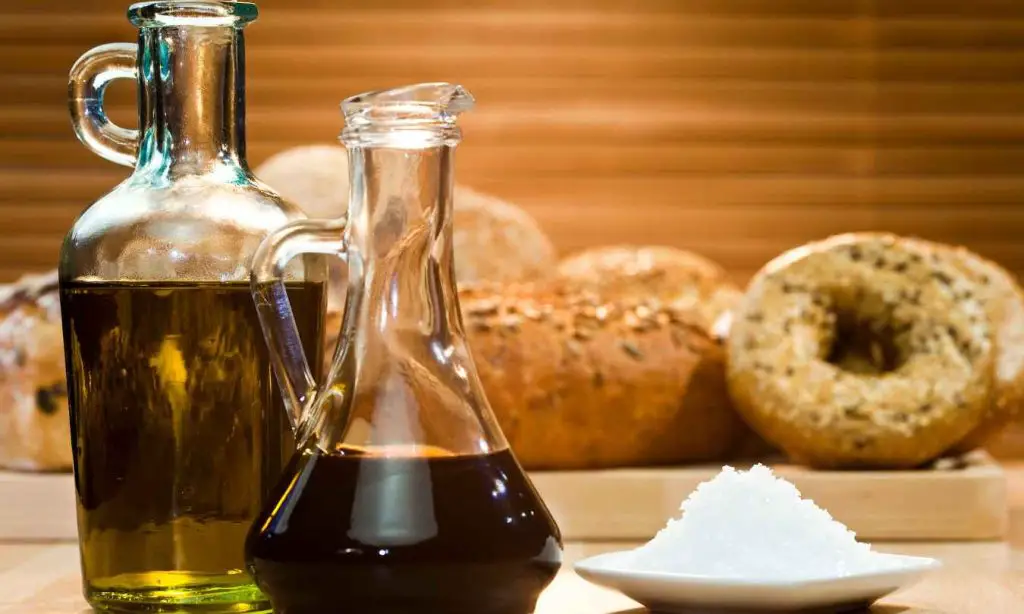If you are a fan of balsamic vinegar, then you know just how delicious and versatile it can be. But, as with many foods, you may be wondering how to store and preserve this tangy and flavorful liquid. In particular, you may be wondering whether you need to refrigerate balsamic vinegar or not. In this article, we will explore the answer to this question and provide you with some insight into the world of balsamic vinegar.
What is Balsamic Vinegar and What is it Good For?
Balsamic vinegar is a type of vinegar that is made from the concentrated juice of grapes that are left to ferment for an extended period of time. The resulting liquid is then aged in barrels, often made of specific types of wood, such as oak or cherry. The aging process can take anywhere from a few years to several decades, and this is what gives balsamic vinegar its distinctive flavor and aroma.
Balsamic vinegar is commonly used in salad dressings, marinades, and sauces, and has a flavorful and tangy drizzle over vegetables, fruit, and even desserts. It pairs particularly well with salads that feature sweet and savory ingredients, such as strawberries, feta cheese, and spinach. It is also commonly used as a flavor enhancer for roasted meats, such as chicken, pork, and beef.
Does Balsamic Vinegar Need to be Refrigerated?
So, now that we have a better understanding of what balsamic vinegar is, let’s get to the heart of the matter: does balsamic vinegar need to be refrigerated? The short answer is no, it does not need to be refrigerated. However, there are some caveats to this answer that are worth exploring.
Related: Does Hummus Need Refrigeration?
How Long Does Balsamic Vinegar Last Once Opened?
One of the key things to keep in mind when it comes to storing balsamic vinegar is how long it lasts once it has been opened. While balsamic vinegar does not need to be refrigerated, it is best to store it in a cool, dark place, such as a pantry or cabinet. This will help to preserve the flavor and aroma of the vinegar. Once you have opened a bottle of balsamic vinegar, it will typically last for around 3 to 5 years if stored properly. However, this can vary depending on a number of factors, such as the quality of the vinegar, the conditions in which it is stored, and how often it is used.
Can Balsamic Vinegar Go Bad?
While balsamic vinegar does not necessarily go bad in the same way that other foods do, it can lose its flavor and aroma over time. This is particularly true if it is stored improperly or for too long. If you notice that your balsamic vinegar has started to smell off or has a sour taste, then it may be time to replace it. Additionally, if you see any mold or sediment in the bottle, then it is definitely time to get rid of it.
How Do You Know if Balsamic Vinegar Has Gone Bad?
As mentioned above, there are a few signs that can indicate that balsamic vinegar has gone bad. One of the most obvious signs is if it smells off or has a sour or unpleasant odor. Additionally, if the vinegar has started to develop a cloudy or murky appearance, or if you see any mold or sediment in the bottle, then it is likely time to get rid of it. If you are unsure whether your balsamic vinegar has gone bad, you can always give it a quick taste to see if it still has its characteristic tangy and flavorful taste.
What Foods Go with Balsamic Vinegar?
As mentioned above, balsamic vinegar is a great addition to salads that feature sweet and savory ingredients. It also works well as a marinade or glaze for roasted meats, such as chicken, pork, and beef.
Balsamic vinegar can also be used to add flavor to roasted vegetables, such as Brussels sprouts, carrots, and sweet potatoes. And let’s not forget about desserts – balsamic vinegar is a delicious topping for fresh berries, ice cream, and even chocolate cake.
Conclusion
In conclusion, while balsamic vinegar does not need to be refrigerated, it is best to store it in a cool, dark place to help preserve its flavor and aroma. Once opened, it will typically last for several years if stored properly. If you notice any signs that the vinegar has gone bad, such as a sour smell or cloudy appearance, it is best to replace it.
You should.be free to also experiment with using balsamic vinegar in different recipes and you are sure to discover even more delicious ways to enjoy this versatile and flavorful ingredient.






